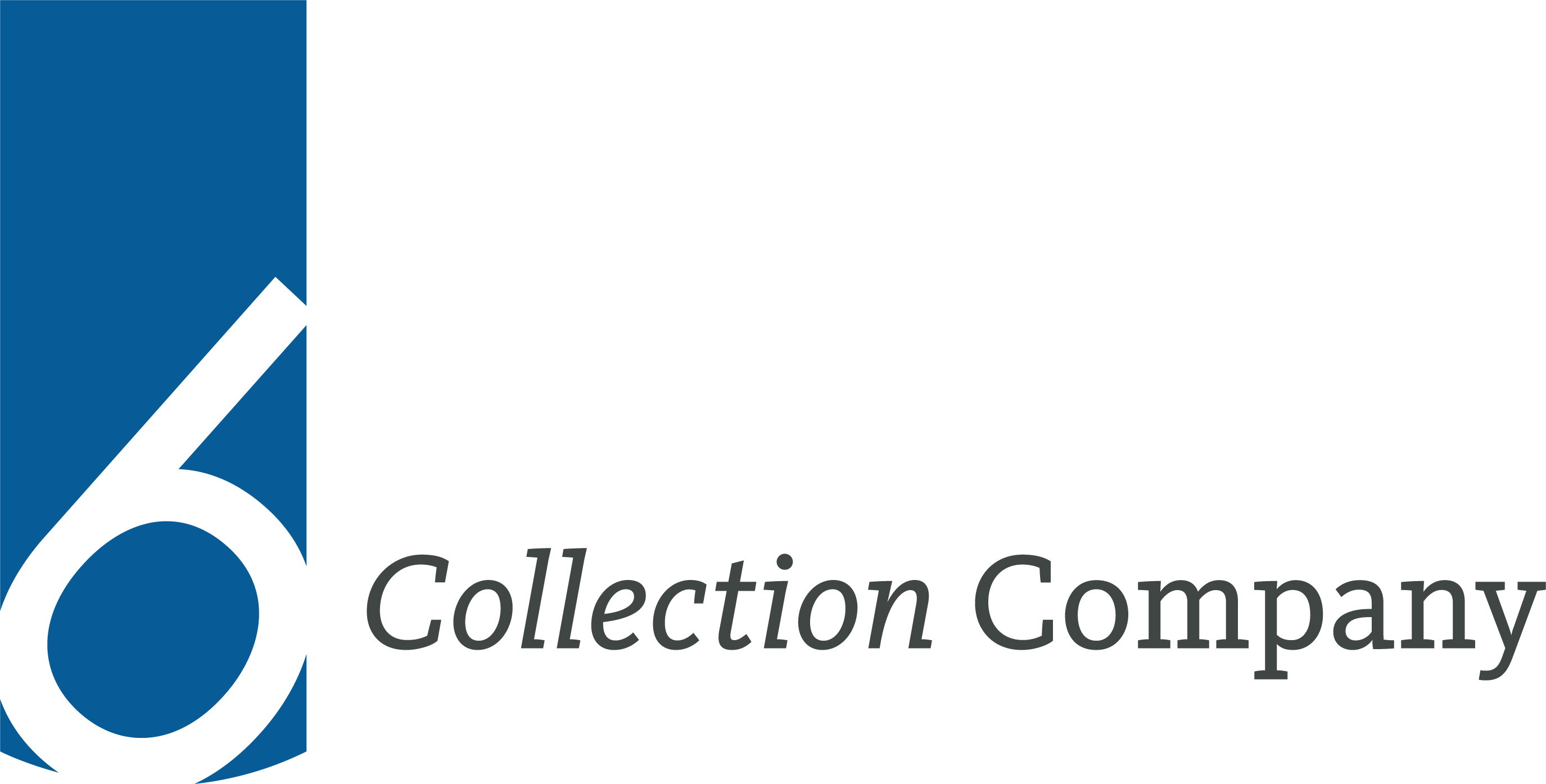Debt Collection Argentina:
how to recover your money?
Do you do business in Argentina? Then the likelihood of encountering a non-payer is relatively high. Research shows that the payment discipline in Argentina is considerably lower than in many other countries.
Fortunately, as an international debt collection specialist, Collection Company can help you collect your money if a customer does not pay you in time. We have extensive experience with debt recovery in Argentina, are familiar with local laws and regulations, and have a comprehensive network of debt collection lawyers and bailiffs for legal assistance in Argentina.
- Nationwide coverage in Argentina
- One dedicated English speaking contact
- Proven track record
- Tailor-made services for each case
- Expert advice and a transparent process
- 24/7 online access
Local specialists in Argentina
Argentina is a vast country with its own business customs and laws. The regulations of your own country do not apply here, and you probably have to deal with a language barrier. This can make it a time-consuming and complicated task for foreign investors and foreign companies to find out where to turn if they are dealing with a debtor.
Argentina is divided into 23 provinces and one autonomous city, Buenos Aires, with their own procedural codes and administrative law. Our debt collection agency has local partners in all these regions. Since our partners speak your debtor’s language, it makes it easier for us to collect your claim. Moreover, our local specialists are familiar with the applicable laws and regulations in Argentina and are in the same time zone as your debtor and the local authorities, allowing them to communicate quickly.
Do you have an outstanding invoice in Argentina and want to discuss the chances of success for your case? Then request a free and non-binding consultation on how to recover the debt.
Tip: Late payments are common in Argentina. Additionally, the legal system is overloaded, and there are few established mechanisms for debt collection. Therefore, it is wise to agree on payment in advance (or a deposit). In 45% of all international transactions in Argentina, payment is made in advance.
Why Collection Company for your debt collection in Argentina?
- Global coverage
- One dedicated English speaking contact
- Experienced debt collection specialists with knowledge of Argentine legislation
- Extensive network with Argentinian specialists (international lawyers and bailiffs)
- Seamless connection from extrajudicial to judicial action
- Effective local approach
- 24/7 tracking through your own Online Cockpit
Submit your claim now?
Do you have outstanding claims in Argentina? Enter your details, and one of our debt collection specialists will contact you as soon as possible to discuss your claim.

How does debt collection work in Argentina?
To initiate a debt collection process in Argentina, we must first send a default notice to your debtor. We do this via certified mail. If your invoice does not specify a payment term, a legal payment term of up to 270 days applies in Argentina.
Once the payment term has expired, we will initially attempt to collect your claim through an amicable process (without court intervention). If that doesn’t succeed, unlike many debt collection agencies we have the necessary knowledge and resources to start a judicial procedure.
- Upload your invoice online
- We'll start your case
- We'll start with the debt collection process
- Together we decide the best strategy for collecting your debts
- Monitor the status of your case 24/7
- Any questions? Your personal accountmanager will answer them all!
- Your invoice is payed
Extrajudicial debt collection in Argentina
Compared to countries like, for example, Germany or Norway, the legal system in Argentina is known to be very rigid and formal. Courts are also very busy, which means legal procedures can take a relatively long time. The most efficient way to collect your money is therefore through amicable means. Our debt collectors first attempt to collect your claim without court intervention.
During this extrajudicial or out-of-court phase, we approach your debtor. In total, there are about 16 points of contact where we urge your debtor to pay the invoice promptly.
In Argentina there are no statutory debt collection fees. Therefore, it is even more important that your interests are represented by specialists who know how to recover these costs.
Mandatory mediation
If we are unable to resolve the issue directly with your debtor, immediately commencing legal action is not possible within the Argentine legal framework. Before initiating a lawsuit in Argentina, mandatory mediation is required. A mediator (mediador) is appointed to negotiate between both parties.
The mediator does not have the authority to make binding decisions but will attempt to bring the parties closer together. If the parties reach an agreement, it is certified by the mediator and validated by the Ministry of Justice and Human Rights (Ministerio de Justicia y Derechos Humanos). This makes the agreement binding and enforceable.
If mediation does not resolve the issue, we can then start legal proceedings.
Judicial procedure in Argentina
If an amicable settlement proves to be not possible, we can take your case to court.
To initiate legal proceedings, we need the following documents:
- A notarized power of attorney with an apostille*
- Original invoices or promissory notes
- Shipping documents
- Other original documents, such as contracts between you and your debtor
*With the notarial power of attorney, you authorize us to perform legal actions on your behalf. The power of attorney must be written in or translated into the local language (Spanish), and then you must have it issued by a notary who will legalize the document with an apostille.
Once the judicial procedure has started, the court organizes a preliminary hearing. During this hearing, another attempt is made to have both parties reach a settlement. If that fails, a 40-day period is allotted for submitting evidence. The court then takes 40 days to review the evidence.
It is up to the applicant of the legal procedure (the creditor) to provide evidence supporting the claim. The creditor can also call witnesses. The court may request additional evidence if needed.
If your debtor does not show up and fails to submit evidence, it does not mean that you as the creditor will automatically be ruled in favor, as is the case in many other countries. The judge will still fully consider the case’s merits.
Summary proceedings
One option to avoid a lengthy legal procedure is a summary proceeding. This is only possible in Argentina if there are promissory notes, checks, or agreements in which your debtor explicitly acknowledges the debt.
Debt collection costs
The costs for filing a lawsuit (legal fees) in Argentina range from 3% to 5% of the principal amount. When we have to file a lawsuit in a jurisdiction other than Buenos Aires, the initial costs can increase to 5%.
Additionally, interest and extrajudicial costs may be charged. These must be clearly established. Even if both parties have previously agreed on certain interest rates, the judge has the authority to modify them if he concludes that they are disproportionate to the principal amount, for example, or if there is unjust enrichment, meaning there are no valid grounds for the additional costs.
Arbitration: alternative to a lawsuit
As mentioned earlier, collecting a claim through a legal procedure can take a relatively long time. A faster alternative is arbitration.
Arbitration is a form of alternative dispute resolution where the case is not fought out before a government judge but brought before an arbitration committee. The arbitration committee can make a binding decision.
Arbitration is recognized both internationally and in Argentina as an alternative to judicial proceedings to resolve (business) disputes, as long as the arbitration complies with international regulations.
However, to use arbitration, you must agree on it with the other party. It is best to arrange this in the purchase agreement. For example, you can include in your General Terms and Conditions or in the purchase contract that any payment dispute will be resolved through arbitration.
The main advantage of arbitration is that it is a much faster process than going to a government judge. Argentina is a party to various international treaties on arbitration law, including the New York Convention. The country must adhere to these treaties. This means, among other things, that the case cannot be brought before a government judge if arbitration has been agreed upon, and that there is no appeal if this has not been agreed upon. As a result, arbitration decisions can also be executed faster than government court decisions.
To execute an arbitration decision, the arbitral award (or a certified copy) must be translated into Spanish and submitted to the court where the case would have been heard under Argentine law without arbitration. The Argentine judge can then grant permission to execute the arbitral award, for example through seizure.
Enforcement proceedings
As soon as a court ruling is final (when no further appeals are possible), the judgment can be executed. If your debtor does not comply with a court decision, the terms of a mediation agreement, or an arbitral award, the court can issue a writ of execution to seize their assets. The debtor then has five days to pay the outstanding amount or arrange a payment plan with the creditor. During this period, the debtor has limited options to object, such as proving payment has already been made or that the claim has expired.
Bailiffs
If the debtor does not pay within five days, a bailiff (alguacil) can seize the asset specified in the court order. The possessions are sold to pay the outstanding debt, legal costs, and interest.
Seizing assets
When the judge issues a compulsory order for seizure (embargo ejecutivo), it specifies what assets can be seized. These can include financial resources such as bank accounts, real estate, or other possessions. The judge considers the amount of the claim and determines what is reasonable. The following order is generally observed:
- Financial seizure (e.g., on wages)
- Seizure of real estate (e.g., homes)
- Seizure of registered goods (e.g., vehicles)
- Assets (business possessions)
- General possessions (e.g., household goods)
Insolvency proceedings
One of the strongest pressure tools we can use as a last resort if your debtor fails to pay, is a bankruptcy application. After all, no one wants to be declared personally bankrupt or see their business go under. Most debtors pay immediately once a bankruptcy application is filed.
Applying for bankruptcy (insolvencia) for your debtor is by Argentine bankruptcy law possible if they cannot or will not meet their payment obligations. It is permitted for the debtor and their creditors to first try to reach an agreement on debt restructuring outside of court (Acuerdo Preventivo Extrajudicial). Two-thirds of the creditors must agree to the proposed restructuring.
If an out-of-court debt restructuring does not succeed, the debtor can request restructuring (Concurso Preventivo) from the court. The court then appoints a trustee (síndico) to assess the financial situation and recommend a restructuring plan to the court. The plan must be approved by debtors representing at least 75% of the outstanding debt.
If it is not possible to reach a debt restructuring plan, or if the debtor voluntarily requests it, the court-appointed trustee will initiate a liquidation procedure. Creditors are paid from the bankrupt estate.
The following order is followed when paying creditors:
- Creditors with privileges (e.g., lenders of credits intended to protect the assets)
- Employees (e.g., back pay or disability benefits)
- The Tax Authorities
- Lenders of credits and mortgages
- Subordinate creditors
Advice about your case?
Fill in your details and we will contact you immediately!

Legal fields
Collection Company deals with various types of debt collection matters in Argentina. We can assist you with all civil law claims against debtors in Argentina. This can include, for example:
- Construction law
- Leasing and renting
- Buying and selling
- Employment law
- Agency agreements
- Transport
- Damages and unlawful conduct
We work directly for clients, but also for intermediaries such as law firms and accounting firms.
Other debt collection services in Argentina
- Reliable advice on contracts and terms
- Credit information about companies in Argentina
- Disputes including issues like Retention of Title and Right of Recourse
- Mediating in reaching private settlements and agreements
Start debt collections in Argentina
You can submit your claim directly to us via our debt collection registration form. Would you like to consult with one of our legal professionals first? Leave your details or call us at +31 70 – 410 2800.
Free advice on debt collection in Argentina
Submit your personal information and plan your free consult.

FAQ: Frequently Asked Questions about debt collection in Argentina
FAQ: What do we need for a debt collection in Argentina?
To initiate a successful debt recovery process in Argentina, please provide us with the necessary documents. We will then start the process. We would like to receive copies of the contract, invoices, and a clear account statement showing payments and credit notes booked against the outstanding invoices.
Missing some documents? No problem. We will work with you to determine which documents and evidence are available. We would like to receive the following documents:
- Copy of the agreements, such as a contract, email, fax confirmation, or simply your summary of what was agreed upon
- Copy of your invoices
- Copy of sent payment reminders
- A copy of your general terms and conditions
FAQ: Is there a database for debts in Argentina?
There is no central debt registry in Argentina. However, our local specialists can conduct a credit check so you know the financial standing of a (potential) customer.
FAQ: Is there a statute of limitations for claims in Argentina?
A statute of limitations means that a claim is no longer legally enforceable after a certain amount of time. This means you no longer have the right to fulfill the claim. In other words: the claim disappears. The statute of limitations in Argentina is 10 years. However, there are sometimes exceptions. For claims arising from an unlawful act, for example, the statute of limitations is only two years. Therefore, we always advise you to contact us as soon as possible so that we can advise you on the chances of success of your case.
FAQ: Does Argentina recognize retention of title?
A retention of title is a condition in the agreement where the buyer only becomes the owner of the goods once they have been fully paid for. In Argentina, such a retention of title is hardly recognized. According to the law, ownership transfers to the buyer at the moment the goods are delivered.
FAQ: Is there a statutory interest rate?
There is no statutory interest rate for late payments in Argentina. Typically, a maximum of 1% interest per month is charged. To receive this interest, it must be documented in an official document, such as a debit note.
Why 40.000 customers tried our services
- The #1 collection company in the Netherlands and abroad
- Regional & local specialists
- Years of experience with international invoices
- Your own personal contact
- Extensive advice on the legal process
- Monitor the status of your case 24/7
Meet our specialized legal team
- Joost Konings LLMLaw expert
- May Leung LLMLaw expert
- Wesley Boeters LLMInterim lawyer








